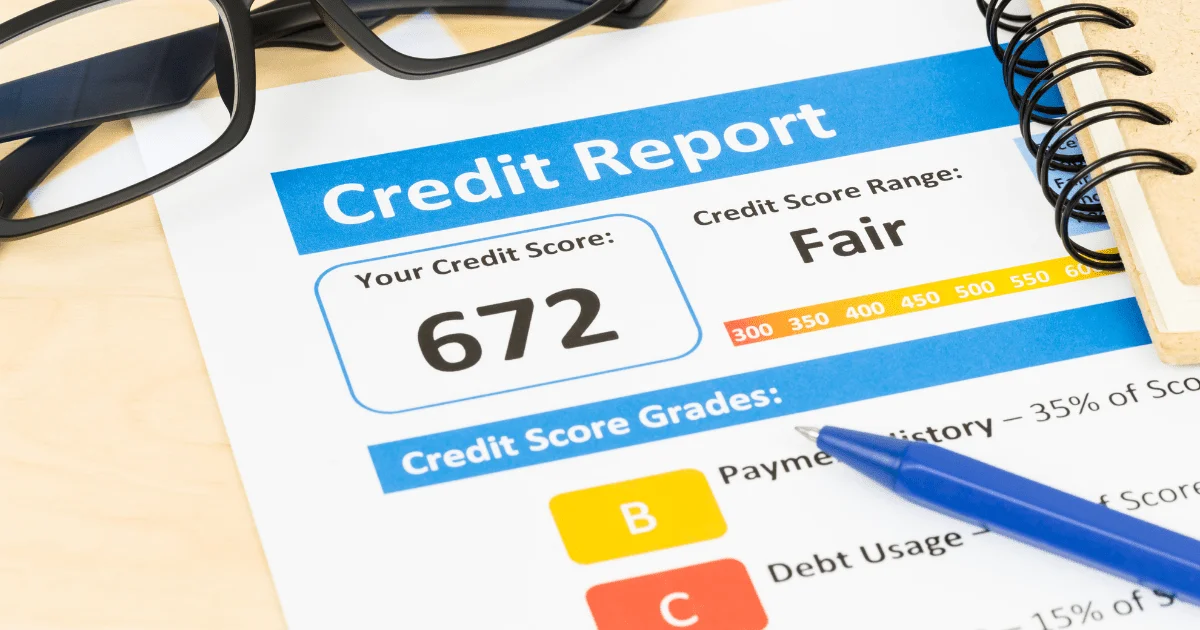
Your Credit Score is incredibly important when you plan to buy a house or refinance a home mortgage. Yet this is one of the most overlooked parts of a home buying plan.
The challenge is to start well ahead of the actual purchase of a home so you can position yourself in the best possible light for lenders and for affordability.
Do you know what your credit score is? Do you regularly monitor your credit report? If you answered yes to both questions, give yourself a pat on the back, and here’s a hearty “Hi Ho!” from me.
If you answered no to either question, keep reading. You have some work to do.
Understanding how credit works is so important for so many financial choices in life.
If your credit is not so good, cleaning up your credit is essential before you make any major financial moves.
Having a bad score can hurt your chances of being able to open a credit card, apply for a loan, purchase a car, rent an apartment, or crucially, buy a home.
It is especially important to have good or excellent credit before you try to buy a home. With a less-than-great score, you may not get preapproved for a mortgage. If you can’t get a mortgage, you may only be able to buy a home if you can make an all-cash offer.
Or if you do get preapproval, you might get a higher mortgage rate, which can be a huge added expense.
For example, if you have a 30-year fixed-rate mortgage of $500,000 and you get a 3.92% interest rate, the total cost of your mortgage will be $807,480. However, if your interest rate is 5.92%, you’ll have to spend $1,020,960 for the same mortgage – that’s an extra $213,480 over the life of the loan! Ouch!
So now that you understand how important it is to have and maintain a good credit score, how do you start cleaning up your credit if need be? Here, we’ve collected our best tips for improving your score.
What Credit Score Do You Need to Buy a House
Your credit score is a number that ranges from 300 – 850 and that is used to indicate your creditworthiness. These are a number of factors that go into calculating your credit score.
More on that later.
What is a good credit score?
It’s recommended you have a credit score of 620 or higher when you apply for a conventional* mortgage loan. If your score is below 620, you might be offered a higher interest rate but more likely you won’t qualify for a loan.
A score of 720 or above will usually get you the best rate on a mortgage.
FHA loans and VA loans have different requirements, so you’ll want to ask your lender if you can qualify for those loan types.
Talk To a Mortgage Professional
A good place to start is by talking to a mortgage lender or bank. They can review your information and give you an idea of what type of loan to look at and where to start the process.
You can protect your score from more damage by getting a loan professional to check your credit score for you. A professional will be able to guide you to whether your score is in the ‘good’ range for home buying.
Plus, every time that you request your own credit score (or another credit agency does so) (aka hard inquiry), the credit companies record the inquiry, which can lower your score. Having a professional ask instead ensures that you only record one inquiry. Once you know your score, you can start taking action on cleaning up your credit.
Alternatively, you can use a free service to find out what your credit score and history are. You are entitled to an annual free credit report from the top 3 national credit agencies from Annual Credit Report.com. You can also use CreditKarma.com, CreditSesame.com, as well as many credit card companies that will give you free credit updates. These companies include Discover, Citibank, and Capital One.
FICO® Score Vs. Credit Score
The three national credit reporting agencies – Equifax®, ExperianTM, and TransUnion® – collect information from lenders, banks, and other companies and compile that information to formulate your credit score.
There are lots of ways to calculate a credit score, but the most sophisticated, well-known scoring models are the FICO® Score and VantageScore® models. Many lenders look at your FICO® Score, developed by the Fair Isaac Corporation. VantageScore® 3.0 uses a scoring range that matches the FICO® model.
However, and this is really important to know, each lender may have their own method for calculating your score so just because your report says you have a 690 doesn’t mean your lender will report the same score for calculating what you qualify for with them.
The following factors are taken into consideration to build your score:
- Whether you make payments on time
- How you use your credit
- Length of your credit history
- Derogatory marks
- Your new credit accounts
- Types of credit you use
- The total amount of accounts
- How many “hard inquires” you have
Change Your Financial Habits to Boost Your Score

Here are some tips for improving your credit.
Tip #1: Pay Off Outstanding Debt
Tip #2: Pay Your Bills On Time
Tip #3: Don’t Apply For Too Much Credit
Tip #4: Use Less Than 30% of Your Available Credit
Tip#5: Don’t Close Credit Accounts That You Have Paid Off
Tip#6: Clean Up or Dispute Incorrect Reported Items
What if your score has been damaged by late payments or delinquent accounts? You can start repairing the damage quickly by taking charge of your debts.
For example, your payment history makes up 35% of your score according to myFICO. If you begin to pay your bills in full before they are due and make regular payments to owed debts, your score can improve within a few months. It can take 30 days or more for changes to be reflected in your credit score, so be patient.
Amounts owed are 30% of your FICO score. What matters in this instance is the percentage of credit that you’re currently using. For example, if you have a $5000 limit on one credit card, and you’re carrying a balance of $4500, that means 90% of your available credit is used up by that balance. You can improve your score by reducing that balance to free up some of your available credit.
The length of credit history counts for 15% of your FICO score. If you’re trying to reduce debt by eliminating your credit cards, shred the card but DO NOT close the account. Keep the old accounts open without using them to maintain your credit history and available credit. You may need to occasionally use paid-off accounts to keep them active. Charge something to the account then pay it off right away.
Monitor Your Credit Report, Find and Correct Mistakes Immediately

How common are credit report mistakes? Inaccuracies are rampant. In a 2012 study by the Federal Trade Commission, one in five people identified at least one error on their credit report. In their 2015 follow-up study, almost 70% thought that at least one piece of previously disputed information was still inaccurate.
Go through each section of your report systematically, and take notes about anything that needs to be corrected.
Your Personal Information
Start with the basics: often overlooked, one small incorrect personal detail like an incorrect address can accidentally lower your score. So, before you look at any other part of your report, check all of these personal details:
- Make sure your name, address, social security number, and birthdate are current and correct.
- Are your prior addresses correct? You’ll need to make sure that they’re right if you haven’t lived at your current address for very long.
- Is your employment information up to date? Are the details of your past employers also right?
- Is your marital status correct? Sometimes a former spouse will come up listed as your current spouse.
- If you have a common name, you might have derogatory reports from someone else. Report these with all due haste.
Your Public Records
This section will list things like lawsuits, tax liens, judgments, and bankruptcies. If you have any of these in your report, make sure that they are listed correctly and actually belong to you. Work to pay off or eliminate these ASAP.
A bankruptcy filed by a spouse or ex-spouse should not be on your report if you didn’t file it. There shouldn’t be any lawsuits or judgments older than seven years, or that were entered after the statute of limitations, on your report. Are there tax liens that you paid off that are still listed as unpaid, or that are more than seven years old? Those all need to go.
Your Credit Accounts
This section will list any records about your commingled accounts, credit cards, loans, and debts. As you read through this section, make sure that any debts are actually yours.
For example, if you find an outstanding balance for which your spouse is solely responsible, that should be removed from your report.
Any debts due to identity theft should also be resolved. If there are accounts that you closed on your report, make sure they’re labeled as ‘closed by consumer’ so that it doesn’t look like the bank closed them.
Your Inquiries
Are there any unusual inquiries into your credit listed in this section? Are there any inquiries that were not requested by you?
An example might be a credit inquiry when you went for a test drive or were comparison shopping at a car dealer. These need to be scrubbed off your report.
Report the Dispute to the Credit Agency
If there are major mistakes, you can take your dispute to the credit agencies. While you could send a letter, it can be much faster to get the ball rolling on resolving a mistake by submitting your report through the credit agency’s website. Experian, Transunion, and Equifax all have step-by-step forms to submit reports online.
If you have old information on your report that should have been purged from your records already, such as a debt that has already been paid off or information that is more than 7 years old, you may need to go directly to the lender to resolve the dispute.
Follow Up
You must follow up to make sure that any mistakes are removed from your reports. Keep notes about who you speak to and on which dates you contacted them. Check back with all of the credit reporting companies to make sure that your information has been updated. Since all three companies share data with each other, any mistakes should be corrected on all three reports.
If your disputes are still not corrected, you may have to also follow up with the institution that reported the incident in the first place, or a third-party collections agency that is handling it. Then check again with the credit reporting companies to see if your reports have been updated.
If you can keep on top of your credit reports on a regular basis, you won’t have to deal with the headaches of fixing reporting mistakes. If you make your monthly credit review part of your financial fitness routine, you’ll be able to better protect your buying power and potentially save thousands of dollars each year.
Other Considerations When Preparing to Buy A House

Debt-To-Income Ratio
Your Debt-To-Income ratio is a major consideration when applying for a loan or credit of any kind. The DTI compares your monthly income to your monthly debt payments.
To find your DTI, divide the amount of recurring debt (rent, car payments, etc.) you have by your monthly income.
Here’s an example: If your debt is $1,000 per month and your monthly income is $3,000, your DTI is $1,000/$3,000 = 0.33, or 33%.
The lower your ratio, the better.
Income and Assets
Mortgage lenders want to make sure you have a steady income, so be prepared to show pay stubs, paychecks, or business income for at least the past 2 years. Have your assets and investment information handy as well. Knowing you have savings or investments to draw on lends strength to your position as a borrower.
Conclusion
Plan well in advance before considering a home purchase, especially if you are a first-time homebuyer.
Use a mortgage broker, as they have access to many lenders and loan types. You have a better chance of qualifying for a loan and getting the best rate when you have options.
Check your credit score and report regularly so you don’t have any surprises at the last minute.
A high credit score can save you thousands of dollars on your mortgage, so put yourself in the best position you can before shopping for a home.
Does your credit score need a boost so you can buy a home? Get in touch with us, we can connect you with the right lending professionals to help you get the guidance you need.
* Learn what a conventional mortgage loan is.

![According to the US-based National Association of Realtors, refinishing your wood floors is the #1 project that pays off in terms of resale value—with an average ROI of 147%!
If your floors are looking worn or dated, a refresh can make a huge difference. Here are some tips if you plan to tackle this project yourself:
🛠 Rent professional-grade equipment to make the job easier
📅 Block off enough time (at least a few days) to get the job done right
🪵 Consider a lighter wood stain if you want to modernize your space
Looking for more budget-friendly upgrades with a big impact? Check out our latest blog post!
🔗 [Link in Bio]
#realestate #realestateagent #DIYprojects #homeimprovements #propertyvalues](https://gghknoxville.com/wp-content/plugins/instagram-feed/img/placeholder.png)


Leave a Reply